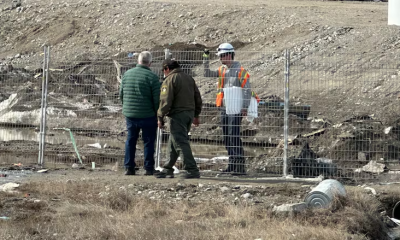Headline
Austria now in PH’s travel restrictions list over South African COVID-19 variant

However, Roque said that Filipino citizens and those foreign passengers arriving in the country before Sunday are required to undergo a facility-based 14-day quarantine period, regardless of the result of their RT-PCR test. (Pexels Photo)
Another country has been included in the Philippines’ list of countries with travel restrictions, after the new South African COVID-19 variant was found there.
In a statement on Friday, January 8, Presidential Spokesperson Harry Roque said foreign travelers coming from Austria or who have been there within 14 days prior to arriving in the Philippines will be prohibited from entry starting 12:01 a.m. of January 10, Sunday (Manila time) until January 15, Friday.
Foreign passengers who are flying from Austria to the Philippines before Sunday will still be allowed entry. Filipino citizens coming to the Philippines from Austria even after January 10 will also be exempted from the travel restrictions.
However, Roque said that Filipino citizens and those foreign passengers arriving in the country before Sunday are required to undergo a facility-based 14-day quarantine period, regardless of the result of their RT-PCR test.
The Philippines has prohibited the entry of foreigners from more than 20 countries to prevent the further spread of the new coronavirus variant that was first discovered in the United Kingdom which is said to be more contagious.
Hong Kong officials earlier reported that they have found the UK variant of COVID-19 in a passenger who flew to their country from Manila. It was then confirmed that the traveler is a Filipino, but the Department of Health (DOH) said that the UK variant of COVID-19 has not yet been detected in the Philippines.
“Based on the lineage analysis through whole genome sequencing done by the PGC (Philippine Genome Center), the UK variant was not detected in any of the 305 positive samples submitted to them from nine institutions,” the DOH said in its statement on Wednesday.
On Thursday, Health Undersecretary Maria Rosario Vergeire said the Philippine government is now monitoring three COVID-19 variants — the ones that are found in the UK, South Africa, and Malaysia.
She also noted that the 305 samples earlier analyzed by the PGC were just “initial” and said that they will continue their surveillance.
Vergeire added that they are getting samples from other regions, specifically in Mindanao and Visayas, to see if there is a new variant in those areas which they will find out through genome sequencing.



























